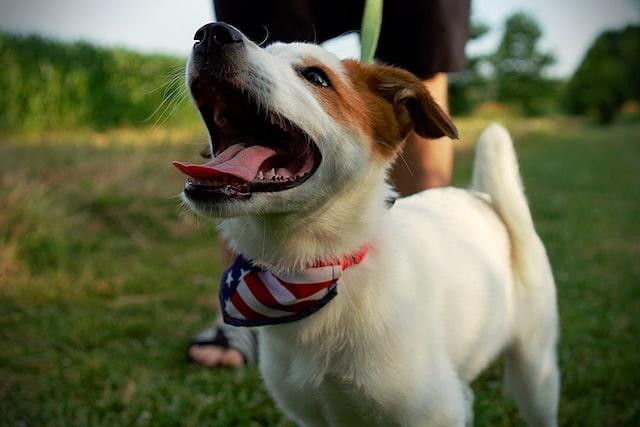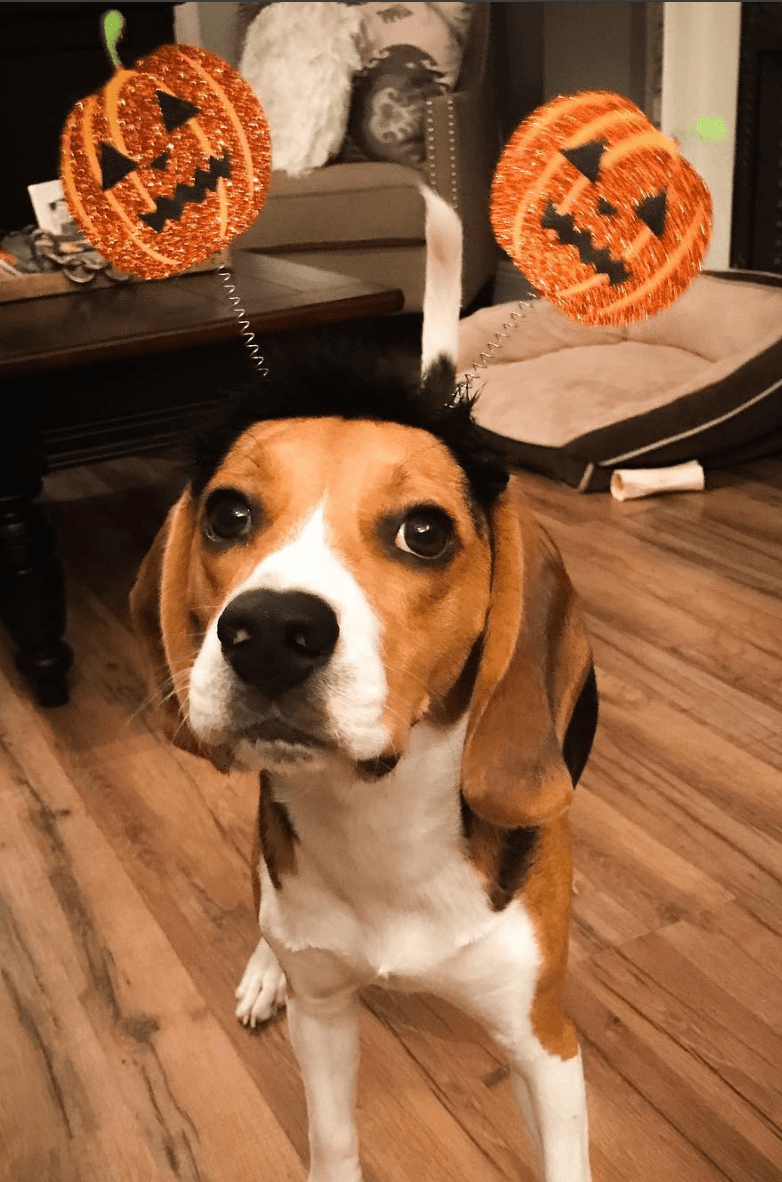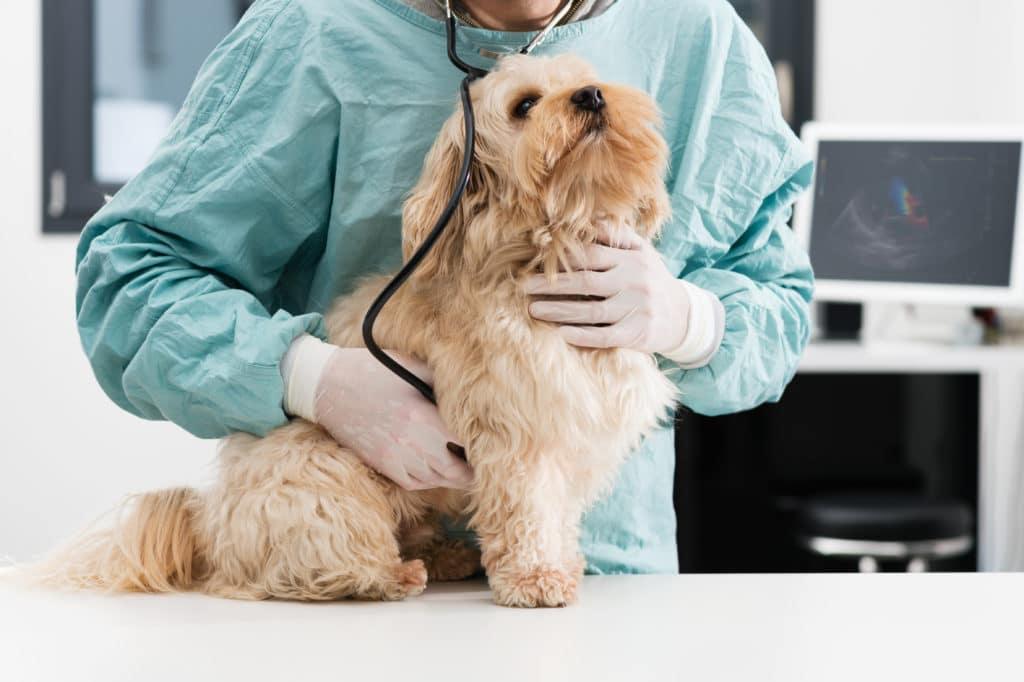Whether it's from playing in the sunshine with your dog or a vigorous game of fetch, you probably have seen your four-legged best friend with their tongue lolling out of their mouths, panting heavily.
Obviously, it makes sense if your dog has been running here, there, and everywhere. Don't worry! Usually, a panting dog indicates a happy, active pup cooling off after some enjoyable playtime. It's normal behavior.
First of all, don't panic - in most cases, a panting dog is a sign of a happy, well-exercised dog who is just being themselves and trying to cool down from all the fun they’ve been having. However, there are a couple of warning signs that are worth watching out for, just in case. To work out the differences, we've gathered information to understand the importance of why it is that dogs pant.
Related: CBD Oil for Dogs with Cancer: Everything you need to know

A Guide to Your Panting Dog
The way that dogs are designed is inherently different from humans. When it comes to people, after running around on a warm day or exerting ourselves, we're usually sweating, taking off an item of clothing, or looking for an ice cold drink. When it comes to dogs, these are options that they don't have - after all, they're wearing the equivalent of a fur coat at all times.
Once a dog's body temperature has increased, they don't have the option of sweating to cool down in the way that humans do. While it’s a common misconception that dogs don’t have sweat glands, they actually do have them through their paw pads. But panting is the real MVP when it comes to lowering a dog's body temperature. Panting circulates air around their bodies, helping cool them down the natural way.
If your dog is actually too hot, you help cool them down in a similar way that you’d enjoy. Where we might take a cold shower or have a long drink, some dogs will enjoy jumping into a body of water to get their back chilled. However, this isn't recommended for all dogs - certain breeds, like French Bulldogs and Pugs aren't meant for the water and cannot swim, so make sure they don’t find themselves in a too deep of a body of water.
Some dogs also like to pant when they're feeling particularly happy - especially if they’re playing with you. This is where it helps to know your dog’s behavior and understand a little bit about your dog’s body language. If they have bright eyes and are panting gently, and the tail is wagging, then your dog is probably just loving life. Think of it as the equivalent of a dog grinning at you!
However, for some dogs, this is a prime example of anxiety or stress. For many dogs, this is why they pant when they’re in cars, as they’re feeling anxious and a little bit more on edge. This causes an increase in their heart rate and you’ll begin to hear the familiar sound of panting. Here, their body language may be more anxious and less playful, their tail may be limp or hanging down, and their eyes might seem wide and fearful. It’s important to understand the signs of your dog feeling stressed so that you can help minimize stress and help your dog through their anxiety.
Related: How to Stop a Dog Barking When Left Alone

What's the Difference Between Panting and Labored Breathing
While it can be confusing to work out whether or not your dog is panting for good or bad reasons, there is actually a big difference between panting and labored breathing. If your dog is breathing heavily while making a sound like crying, whining, or even a whistling sound, this can mean that something more serious is going on. The sounds here are an indicator that your canine pal is having problems breathing.
When it comes to being hurt or feeling unwell, dogs will typically try to hide their discomfort. In some cases, and at certain levels, this becomes impossible. Panting can be an indicator that your dog isn't feeling very well and will often come along with other symptoms like behavior changes, vomiting, or loss of appetite. If this has happened, it's best to contact your veterinarian immediately.
Your dog may also pant if they have a fever, for similar reasons that humans sweat - it helps to lower body temperature. However, if your dog is on certain medication from the veterinarian, this might increase their respiration and induce panting. If your dog has eaten something that has upset their stomach, they may also pant before they vomit.
Related: Asian Carp - 5 Facts You Should Know About This Sustainable Fish
Body Language to Look For
In general, while our four-legged friends aren't the best at communicating verbally, there are plenty of body language clues you can check out to see if your dog is panting for normal or abnormal reasons.
- If your dog looks happy, is playing, eating and drinking normally, and it happens to be a warmer than average day, then panting is a perfectly normal situation.
- If you experience behavioral changes, your dog is crying, or seems lethargic and uninterested while panting, it's probably time to get him or her checked out by a professional.
The final type of panting to watch out for is when it goes from normal to abnormal - usually on a particularly hot or sunny day. If your dog has been running around in the sun for too long, or getting overly excited, there may be a risk that your dog is overheating.
In this case, you'll find that your dog's tongue and gums go bright red, they have wide eyes, and their tongue may look stretched out.
If this has happened, make sure your dog has water, and keep an eye on their heat exposure. If cool water and shade hasn't helped or if you're in any doubt, call your vet.
Related: 10 Best Apps for Dog Owners

What Should You Do for a Panting Dog
While panting is normal for most dogs, always schedule a vet visit if you are concerned about it. Dog panting can be a minor issue or a sign of a severe condition. When you get a professional examination, the vet will conduct a test to identify the cause of the panting. With that, you and the vet can work to find treatment options for your dog.
In the summer, heavy panting can be caused by the heat. In those situations, you will want to keep your dog cool. Getting your dog in a cold space can prevent heat stroke, discomfort, general panting, and even stress. Make sure to provide your dog with plenty of cool drinks. Remember that dogs can lose a lot of fluid from drooling.
Along with that, you will want to find a calm and quiet place for the dog to get relief from the heat and sun. Air conditioning, shaded spots, and cooling mats will help your dog beat the heat.
Also, ensure that your dog is well-groomed. Some breeds can get a “summer cut” to keep them cool in the warmer months.
How Do I Know If My Dog Is Panting Too Much?
Normal panting has an average number of breaths per minute at 30 to 40 for most dog breeds. Keep in mind that smaller dogs will take more breaths than those large canines. Heavy panting should only be a concern when it happens regularly or for a long time on a consistent basis. If that is happening with your canine pal, then it is time to note your dog’s behavior and actions.
Although panting is entirely normal in dogs, you will want to watch out for a few signs. If your dog is lethargic, shaking, coughing, or acting strange, it is time to get to the vet.
There is no one set of symptoms that could indicate a problem. When your dog is panting more than average or at different intervals, that could signify that something is wrong.
Is Panting at Night a Concern?
It can be concerning to see your pup panting heavily or excessively when you are relaxing at night. Some dogs feel anxiety at night, especially if they are placed in another room for their bedtime. Heavy panting is typical for puppies, but it can happen with older dogs as well.
You can reduce some anxiety by allowing the dog to sleep in the room with you. If that is not possible, put on the radio or television, so your dog has a little company that night. For those who have a few canines in their homes, allow them to sleep in the same room. With that, your dog will feel more relaxed and comfortable at night.
After all of that, your dog should stop heavily panting at night. If it is still happening, your dog might have an underlying health condition, which will require a trip to the vet.
Conclusion
We've gone over what it means when your dog is panting and if it's worth checking out with your vet or not. Your dog is more likely to be panting due to happiness or sweating, but you always want to be sure that it doesn't mean something bad. Since our dogs can't just flat out say what's wrong, it's critical that you pay close attention to their body language and look out for any unusual behavior.
Don’t forget to check out our CBD dog treats for your canine pal!
Related: 10 Most Popular Dog Breeds


















